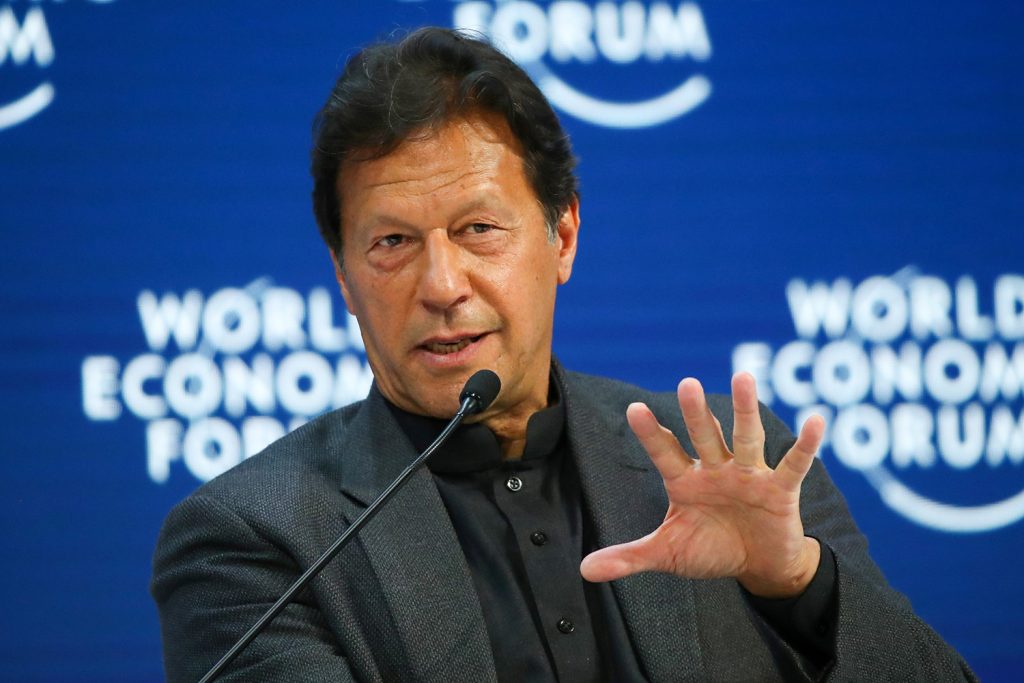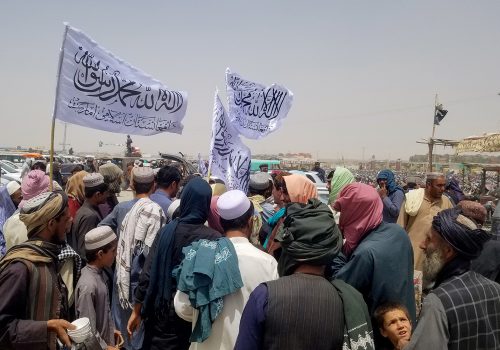On Monday, November 22, 2021 the International Monetary Fund (IMF) and Pakistan reached a staff-level agreement to complete the sixth review under the $6 billion Extended Fund Facility. This agreement is expected to resume the stalled program and unlock close to $1 billion in IMF funds for Pakistan. While IMF conditions are expected to inflict short-term pain on Pakistani citizens, who are already being hit hard with rising inflation, the proposed reforms, if implemented in letter and spirit, are likely to improve the country’s ability to generate sustainable economic growth in the medium-term.
Below, South Asia Center experts share their analysis.
Welcome help to move towards macroeconomic stability and better investor confidence
After months of painful negotiations, and Pakistan on track to enforce required legislative reforms, the IMF finally announced today that it reached an agreement with the Pakistani government for the $1 billion tranche of the $6 billion loan. This is welcome news for the international business community and global investors given turbulent domestic politics, rising inflation, and a rocky US-Pakistan relationship. Given that the United States holds the largest share of votes in the IMF, the revival of the loan, and the likely stabilization of the Pakistani rupee sends the right message to international investors that the international community—and the United States in particular—believes Pakistan is ready to make the necessary reforms and abide by commitments made to the IMF.
The World Bank is expected to release funds that were held since the IMF paused the loan program, and the IMF nod will help move forward the recently announced $4.2 billion promised to Pakistan by Saudi Arabia. The IMF funds, along with the central bank reforms Pakistan agreed to, should help in improving macroeconomic stability and boost investor confidence in Pakistan’s ability to execute their reform agenda and stabilize the economy. All eyes are on Pakistan to see if this time will be any different than the prior bailouts.
Safiya Ghori-Ahmad, Nonresident senior fellow, Atlantic Council’s South Asia Center
Coming months will be critical
If you look at the IMF programs over the years, you’ll see the policy actions required by the government remain largely the same. This statement is no different. That said, this does settle the wave of uncertainty that had taken over considering the long process of coming to a staff level agreement. The impact is generally positive for investors which will start to show in equities and of course the currency.
However, it is important to note that the leeway given to the government and the central government during COVID-19 is now coming to an end. Over the next few months, the “accommodative” monetary policy will be reversed gradually, leading to a double digit policy rate, more taxes on fuel and electricity, and a less expansionary fiscal and monetary environment. The next few months will reveal how serious the government is on execution and one hopes to see quicker action on things that improve the debt management outlook for the country.
Ariba Shahid, Economic and Business Journalist, Profit Magazine
Not much has changed
The IMF agreement text has barely evolved over the last decade. The latest announcement has the usual commentary on increasing interest rates, reforming state-owned enterprises, making the central bank more independent, and reducing the fiscal deficit. If we look at all statements over the last decade, we may see that not much has changed.
A major sticking point has been the autonomy of the central bank. Before the current governor, the last few governors were either bureaucrats or commercial bankers, often handpicked to follow a certain line as required by the incumbent government. In such a scenario, central bank independence was hampered which often led to reactive policy prescriptions and pursuit of a disastrous fixed exchange rate regime. Legislative changes that bolster the autonomy of the central bank are sorely needed before the onset of the 2023 election cycle.
Having said that, the fact of the matter is that Pakistan has historically failed to implement all suggested reforms in their true spirit, and the IMF has at times been complicit in ignoring the lack of progress.
The result is like groundhog day, where the same symptoms, the same problems, and the same solutions are repeated every few years.
Ammar Khan, Independent Macroeconomist
A positive shift for Pakistan
In my view, the IMF agreement is positive and will bolster investor confidence in Pakistan’s economy. The defined timeline for milestones and reforms is expected to ensure that the government keeps moving in the right direction. In addition, the performance and indicative criteria set out in the agreement will mean that the government remains disciplined in its spending in the coming months. Given Pakistan’s political economy, governments need backing from the fund to make painful decisions, and this agreement is likely to do just that.
Samiullah Tariq, Head of Research, Pakistan Kuwait Investment Company

The South Asia Center is the hub for the Atlantic Council’s analysis of the political, social, geographical, and cultural diversity of the region. At the intersection of South Asia and its geopolitics, SAC cultivates dialogue to shape policy and forge ties between the region and the global community.
Related content
Image: Pakistan's Prime Minister Imran Khan speaks during a session at the 50th World Economic Forum (WEF) in Davos, Switzerland, January 22, 2020. REUTERS/Denis Balibouse


